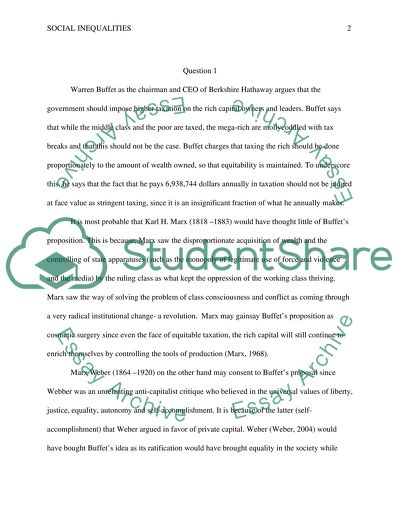Question on Social Inequalities Term Paper Example | Topics and Well Written Essays - 750 words. Retrieved from https://studentshare.org/sociology/1459080-question-on-social-inequalities
Question on Social Inequalities Term Paper Example | Topics and Well Written Essays - 750 Words. https://studentshare.org/sociology/1459080-question-on-social-inequalities.


